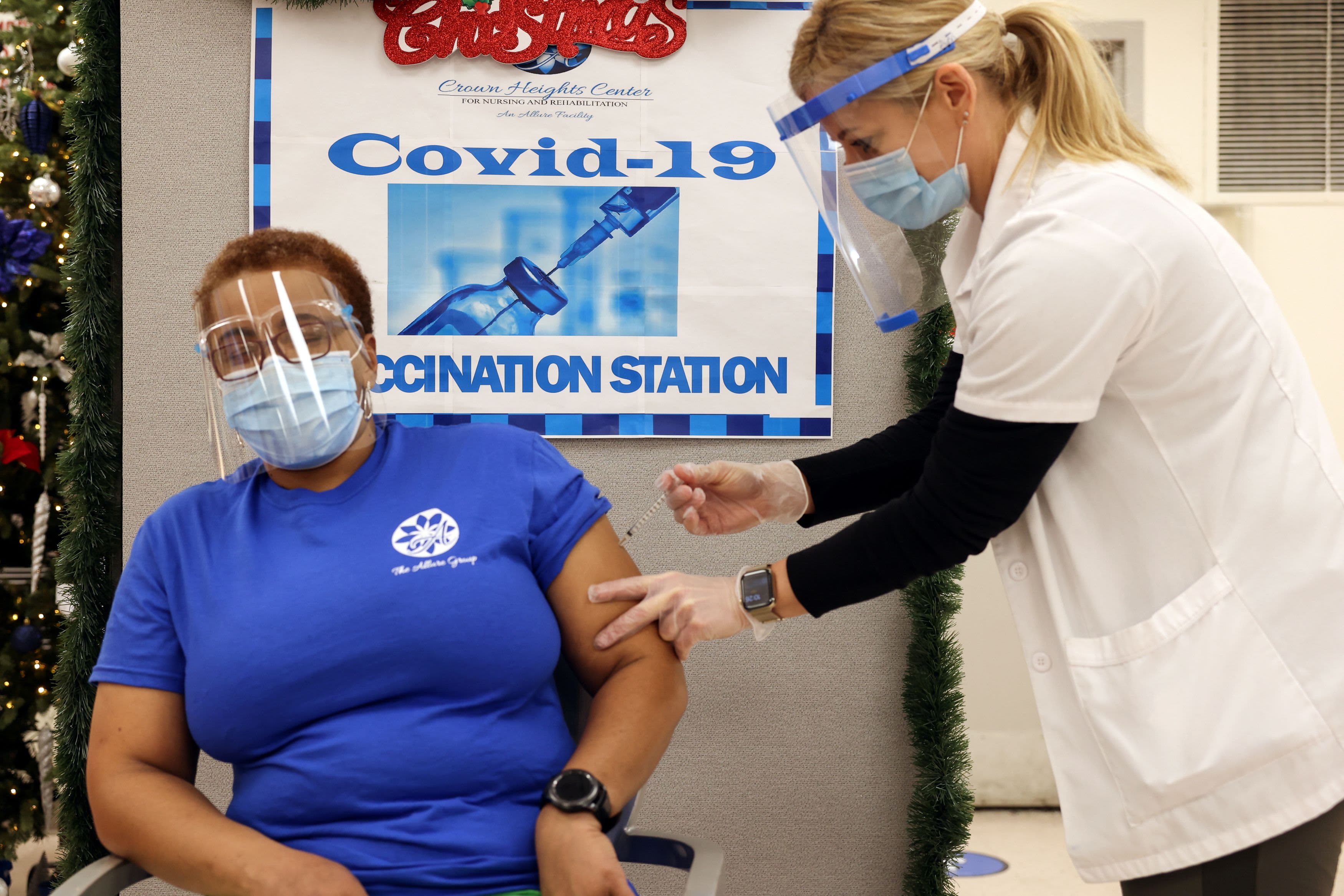U.S. officials plan to withhold federal funding from nursing homes that don’t fully vaccinate their employees against Covid-19, a Biden administration official confirmed to NBC News on Wednesday.
The new policy, which would withhold Medicare and Medicaid funding to nursing homes that don’t comply, could take effect as early as next month, the official said, though the timing is fluid. It would impact about 15,000 nursing homes, which employ more than 1.3 million people nationwide.
The move comes as the highly contagious delta variant continues to drive a surge in new cases nationwide, and federal officials say they are starting to see evidence of waning vaccine protection against mild and moderate disease.
Nationally, about 60% of nursing home staff are vaccinated – much lower than the 82.4% of residents who have gotten the shots, according to data compiled by Centers for Medicare & Medicaid Services. In some states, the percentage of nursing home staff who are vaccinated is even lower.
Some medical experts have asked the U.S. government to pressure nursing homes to vaccinate their staff, saying the unvaccinated employees put older residents – who are more likely to get severely ill or suffer from a so-called breakthrough infection – at greater risk.
President Joe Bien is expected to detail the plan later Wednesday.
Earlier in the day, federal health officials announced that they plan to make booster shots available to most Americans beginning the week of Sept. 20. They said it is “very clear” that immunity starts to fall after the initial two doses, and with the dominance of the delta variant, “we are starting to see evidence of reduced protection against mild and moderate disease.”
“Based on our latest assessment, the current protection against severe disease, hospitalization, and death could diminish in the months ahead, especially among those who are at higher risk or were vaccinated during the earlier phases of the vaccination rollout,” according to the statement signed by CDC Director Dr. Rochelle Walensky, acting FDA Commissioner Dr. Janet Woodcock, White House chief medical advisor Dr. Anthony Fauci and other U.S. health leaders.
Nursing home residents, health-care providers and the elderly — the first groups to get vaccinated in December and January — are likely to be prioritized to get extra shots, according to National Institutes of Health Director Dr. Francis Collins.
